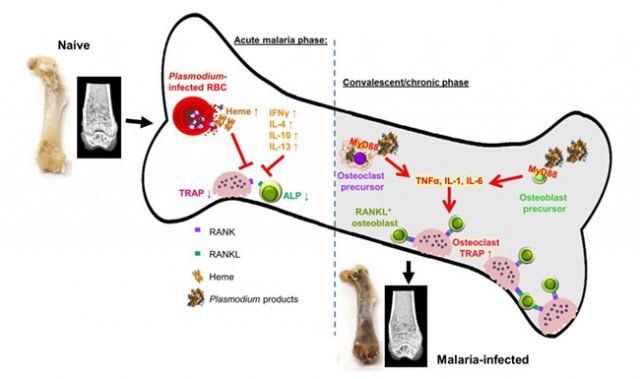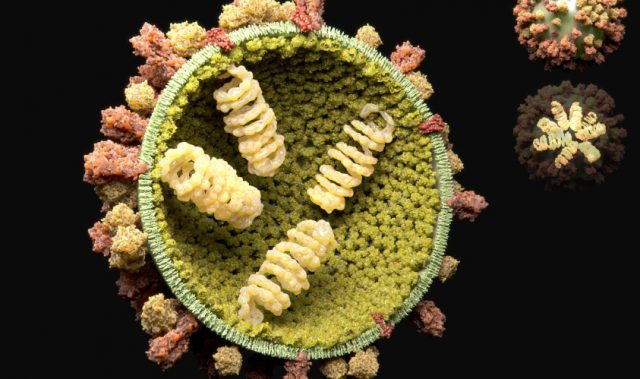
AsianScientist (Dec. 18, 2017) – Scientists in Japan have discovered key molecules enabling malaria parasites to escape destruction by host immune cells. They published their findings in Nature.
Malaria is one of three major infectious diseases affecting approximately 300 million people every year and accounting for about 500,000 deaths. To date, effective vaccines against malaria have not been successfully developed.
Among the malaria parasites infecting humans, Plasmodium falciparum causes especially severe disease. In addition, acquired immunity to malaria is inefficient, even after repeated exposures to P. falciparum. The regulatory mechanisms used by P. falciparum to evade the immune system remain largely unclear.
In this study, a research group led by Professor Hisashi Arase at Osaka University found that proteins called RIFINs expressed on red blood cells (erythrocytes) infected with P. falciparum help the parasite to suppress the host immune response, thus resulting in severe malaria.
The RIFINs bind to a receptor called the LILRB1 which is found on the host’s immune cells—the B and natural killer cells. This elicits an immune inhibitory effect, whereby the host immune cells no longer destroy the infected erythrocyte and its pathogenic payload.
The researchers also noted that P. falciparum-infected erythrocytes isolated from patients with severe malaria were more likely to interact with LILRB1 than erythrocytes from patients with non-severe malaria. This suggests that the binding of RIFINS to LILRB1 is a key pathway in the pathogenesis of severe malaria. The results of this research are expected to greatly contribute to the development of therapeutic drugs and vaccines against malaria.
The article can be found at: Saito et al. (2017) Immune Evasion of Plasmodium falciparum by RIFIN via Inhibitory Receptors.
———
Source: Osaka University; Photo: Shutterstock.
Disclaimer: This article does not necessarily reflect the views of AsianScientist or its staff.












